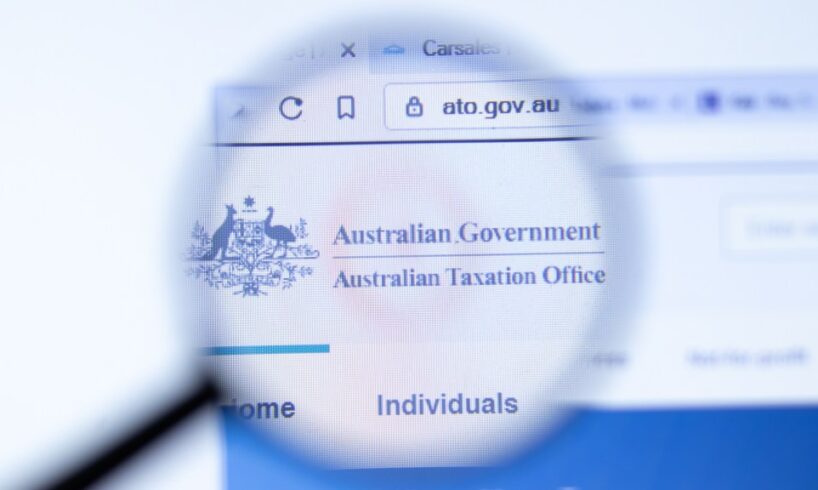
Employers falling short of payday superannuation rules through no fault of their own will escape harsh penalties, the Australian Taxation Office (ATO) says, after business and accounting groups shared deep concerns over the reform.
Related Article Block Placeholder
Article ID: 316383
Legislation enacting the payday superannuation reforms, tying the payment of superannuation guarantee to the payment of employee wages, was tabled in Parliament on Thursday.
Under the plan, employers who do not align their superannuation guarantee payments with regular weekly, fortnightly, or monthly wage payments could face significant financial penalties.
If passed in its current form, the change will take place on July 1, 2026, in keeping with the Albanese government’s established reform roadmap.
Leading accounting bodies and the Council of Small Business Organisations had urged the government to delay the reforms or introduce them for larger employers first.
Smarter business news. Straight to your inbox.
For startup founders, small businesses and leaders. Build sharper instincts and better strategy by learning from Australia’s smartest business minds. Sign up for free.
By continuing, you agree to our Terms & Conditions and Privacy Policy.
Doing so would give small businesses a proper chance to update and test their payroll systems, they said.
Critics also feared problems with third-party clearing houses, payment gateways, and the super funds themselves could delay final payments, exposing employers to penalties even if they did everything right.
The ATO’s new draft guidance, published Thursday, acknowledges some of those concerns.
It recognises fears that some “employers will not have had sufficient time to deploy, test and embed changes within their payroll systems and business processes” prior to July 1.
Related Article Block Placeholder
Article ID: 324194
To assuage fears, the tax office said it would use a three-tier risk system, with businesses that quickly identify and fix mistakes least likely to face an ATO investigation.
Employers might be deemed ‘low risk’ if they attempted to meet their payday super obligations, found some or all of those payments did not land in an employee’s fund on time, but addressed the problem as soon as “reasonably practicable”.
“The level of risk for these cases will depend upon whether the error is corrected, and how quickly the employer corrects the error,” said the tax office.
“An employer who corrects the error as soon as is reasonably practicable will fall into a lower risk zone than an employer who does not.”
‘Medium risk’ businesses might have a super guarantee shortfall on payday, but ensure the shortfall is nil by 28 days after the end of the quarter in which payment should have occurred.
‘High risk’ businesses, and the ones most likely to draw the ATO’s ire, are those with outstanding super guarantee shortfalls outside of that 28-day buffer.
That guidance, covering the period from July 1, 2026, to June 30, 2027, inclusive, is subject to further consultation and the ultimate passage of payday super legislation into law.
In a statement, MYOB CEO Paul Robson said the ATO guidance strikes the right balance between penalising superannuation-dodging businesses, while preventing small employers from punishment when payment delays are not their fault.
“We are pleased to see the government has considered industry feedback and taken a commonsense approach to compliance timeframes,” he said.
“Small and medium-sized businesses employ around two-thirds of Australia’s workforce, making their readiness essential to the successful rollout of Payday Super.
“Empowering these businesses to implement the changes effectively will be key to achieving the Bill’s goals.”
Responding to the bill being tabled in Parliament, Angad Soin, Xero’s ANZ managing director and global chief strategy officer, said it will work with the ATO to assist small businesses “already facing time, compliance, and financial pressures”.
Employment Hero CEO Ben Thompson shared similar views, saying enforcement should recognise “the realities of how small and medium businesses operate”.
Others were more cautious.
Richard Webb, superannuation lead for CPA Australia, said the organisation is “pleased that the government has heard our calls for more proportionate penalties for small businesses who fail to immediately comply with the new rules”.
However, the three-tier risk system “is not the same as if the Bill formally allowed businesses time to adjust”.
“The start date of July 2026 remains a major challenge,” he continued.
“A period of chaos could ensue as businesses try to fulfill their compliance obligations while trying to balance their books.”
Consultation on the ATO’s draft guidance is open until November 7.





